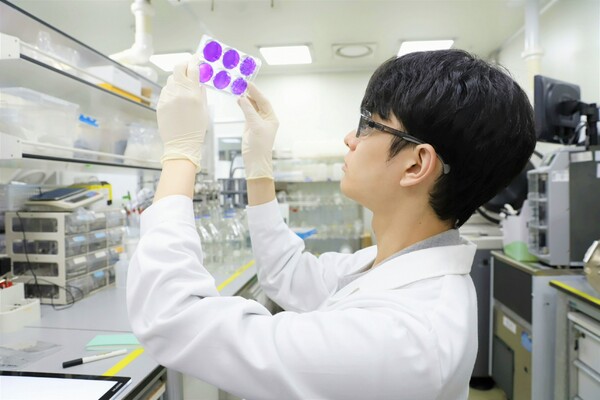SK bioscience said Tuesday it has been selected for the Korea Disease Control and Prevention Agency's (KDCA) project to develop a bird flu vaccine, as the disease is highly likely to trigger the next pandemic.
SK bioscience is the only company in Korea to commercialize vaccines against influenza and Covid-19 using cell culture technology.
For this project, SK bioscience will jointly invest approximately 5.25 billion won in initial development costs with the KDCA. The goal is to develop a cell-cultured bird flu vaccine and enter phase 1/2 clinical trials in the second half of 2026.

Unlike previously developed egg-based vaccines, cell-cultured vaccines are considered more effective for pandemic response due to faster production and supply. In the event of an avian influenza pandemic, sourcing uninfected eggs would be difficult due to mass chicken mortality, disrupting large-scale production and hampering the response to virus variants.
Cell culture vaccines, in contrast, use animal cells to grow the virus in state-of-the-art, sterile production facilities. This minimizes the risk of infection and contamination while enabling rapid mass production and a quicker response to mutations.
Avian influenza has shown low rates of human-to-human transmission so far, but highly pathogenic strains such as H5N1 and H7N9 can infect humans, raising continued pandemic concerns. According to the World Health Organization (WHO), more than 950 human infections were reported between 1997 and January 2025, with about half resulting in death.
Experts warn that if the H5N1 virus mutates to allow human-to-human transmission, it could trigger a deadly pandemic.
Related articles
- SK bioscience defeats Moderna in patent dispute in Korea, clears path for mRNA vaccine
- SK bioscience appoints former MFDS head Lee as outside director
- Gates Foundation polio lead, Antwerp researcher win 2025 Park MahnHoon Award
- SK bioscience ships 750,000 flu vaccine doses to Southeast Asia, Latin America
- SK bioscience wins additional varicella vaccine orders in Latin America
- SK bioscience sees revenue surge in Q1 thanks to German subsidiary
- SK bioscience prevails in Supreme Court case against Pfizer over pneumococcal vaccine patent
- IDT Biologika expands global CDMO presence with active participation in international biotech events
- SK bioscience completes plant expansion in Andong

